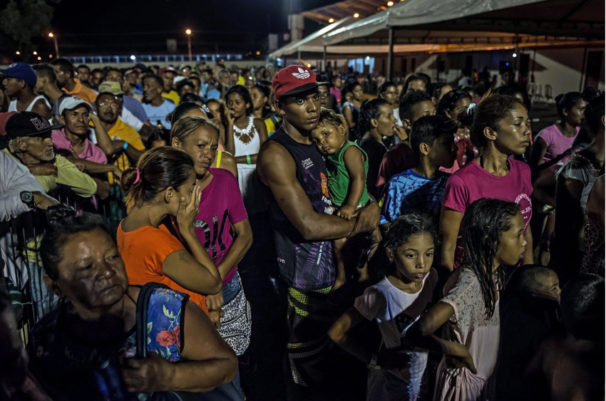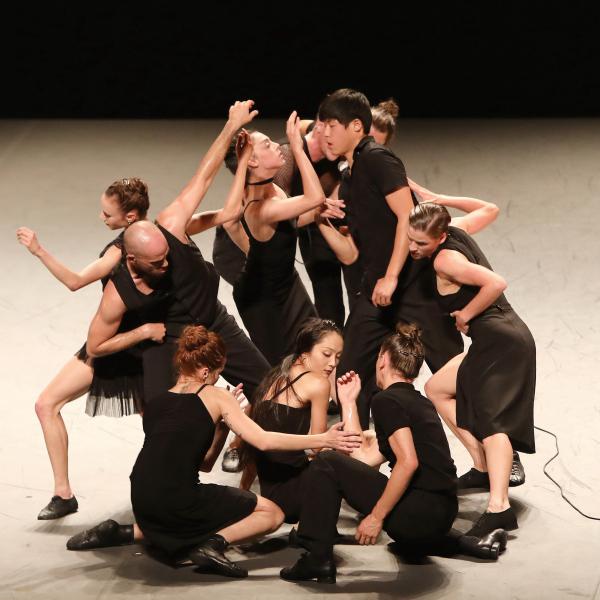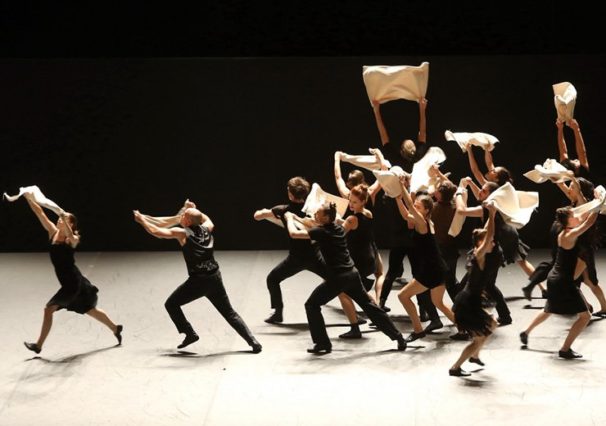
Rarely does dance put its proverbial toe into a tempest, but if there was a choreographer to do so, it would be Ohad Naharin, in his dance swan-song for Batsheva Dance Company, soon at Royce Hall, entitled “Venezuela.”
Once Latin America’s richest country and one of its longest-running democracies, Venuzuela, according to the New York Times, is nearly a failed state. Politic and economic chaos is strife. Inflation has plunged much of the country into desperate poverty. Food and drug shortages are widespread. Public order is collapsing and crime rising. More than three million Venezuelans have fled the country, many as refugees.
So given this highly unstable and still unresolved state of affairs, why, oh why, this title now, Batsheva? The company describes the work like this:
“Venezuela, a new work which explores the dialogue and conflict between movement and the content it represents. Venezuela is a multifaceted piece where the endless possibilities of a choreographer’s craft are at play and compel the audience to challenge their own notion of freedom of choice.”

Seeking further clarification and desiring to understand whether the title in any way exploits the very real suffering of our ally-nation to the south, we invited Kristy Edmunds of the Center for the Art of Performance at UCLA where the work will soon be presented, to share her interpretation (in advance of the performance) of Naharin’s title. And we find her words fascinating and a most helpful framing for the concert (we’re going!).
In Kristy’s view,
I would suggest that Ohad’s choice of title, Venezuela (along with virtually every previous title of so many of his choreographies) is intentionally elusive. He often uses non-words in order to name things (Gaga being a case in point). He is very aware that we want to know the reason for it, to grasp the specific meaning of it, and/or to imagine that the title indicates what the dance is “about” (however non-narrative his dances are). Ohad on the other hand, wants the titles to carry multiple possibilities for the audiences – rather than a concrete, fixed and proscribed meaning. I know that he would prefer us to ponder the title for ourselves after the choreography is experienced than to make the assumption that the work is “about” something concrete, or in this case “about” Venezuela.
All of Ohad’s dances are about bodies in time and space, about liberated possibilities for form, and framing choreographic conditions. Ultimately they are the interplay between immensely diverse ways of eliciting connection between audiences and the dancers.While Venezuela is not a randomly chosen title, and yet it is not “about” the historical, socio-economic, political or current conditions/issues of the nation and/or its inhabitants; not about the founding origins of the nation’s architecture or poets, or about its indigenous inhabitants or its natural resources or its colonial past or its cuisine (etc.).
Perhaps instead, his title is more akin to his interest in the extension of human compassion and care through the expressive lens of dance, and is asking us to consider the complex dynamic tensions of being in the world from whatever place we are standing in it. And, to consider one another in the recognition that everything in the universe is moving all of the time and perhaps how we choose to move within that is the one thing we can truly do something with.
Then too, it could be that the multi-syllabic aspects of the word Venezuela are how he built the pacing for the creation of the choreography…or, perhaps something more intimate and connected to Ohad’s singular way of inviting a work to spring forth.
Kristy Edmunds is the Executive and Artistic Director of UCLA’s Center for the Art of Performance, one of the nation’s leading presenting organizations for contemporary performing artists.

At this writing, I recognize the challenge Kristy is putting before us, but only viewing the work will fully resolve my curiosity. I will see you there.
Our text and photo drew on “What Is Happening in Venezuela? How It Got Here and Why It Matters” by Max Fisher in the New York Times, Jan 24, 2019
Venezuela | Batsheva Dance Company | CAP UCLA Royce Hall | Mar 15 16
